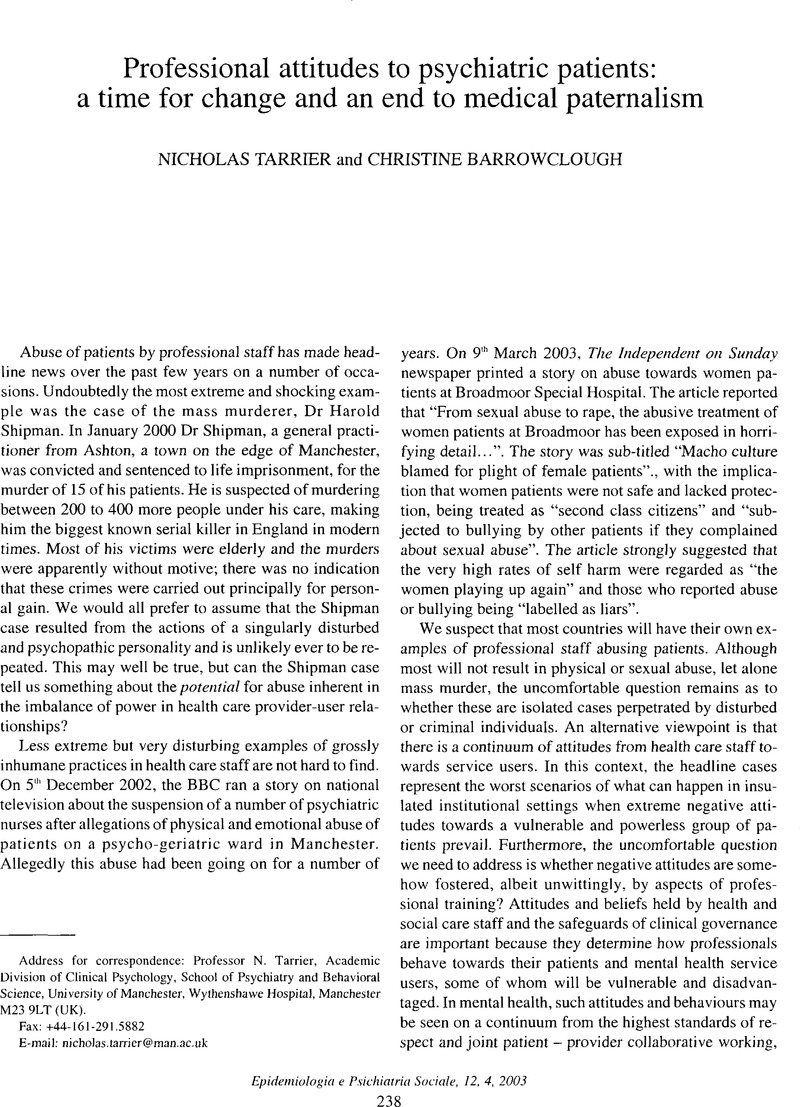Crossref Citations
This article has been cited by the following publications. This list is generated based on data provided by Crossref.
Paccaloni, Monica
Pozzan, Tecla
and
Zimmermann, Christa
2004.
Being informed and involved in treatment: what do psychiatric patients think? A review.
Epidemiology and Psychiatric Sciences,
Vol. 13,
Issue. 4,
p.
270.
Paccaloni, Monica
Pozzan, Tecla
Rimondini, Michela
and
Zimmermann, Christa
2006.
Knowledge and informative needs of patients with the diagnosis of schizophrenia, explored with focus group methods.
Epidemiologia e Psichiatria Sociale,
Vol. 15,
Issue. 2,
p.
128.
Stanhope, V.
and
Solomon, P.
2006.
Getting to the Heart of Recovery: Methods for Studying Recovery and their Implications for Evidence-Based Practice.
British Journal of Social Work,
Vol. 38,
Issue. 5,
p.
885.
Tacchi, Mary Jane
and
Scott, Jan
2008.
Crisis Resolution and Home Treatment in Mental Health.
p.
165.
Paccaloni, Monica
Rimondini, Michela
Pozzan, Tecla
and
Zimmermann, Christa
2008.
The communication of the diagnosis of schizophrenia. Focus group findings on psychiatrists' point of view.
Epidemiologia e Psichiatria Sociale,
Vol. 17,
Issue. 1,
p.
65.
Su, Liang
Huang, Jingjing
Yang, Weimin
Li, Huafang
Shen, Yifeng
and
Xu, Yifeng
2012.
Ethics, patient rights and staff attitudes in Shanghai's psychiatric hospitals.
BMC Medical Ethics,
Vol. 13,
Issue. 1,
Heneghan, Cara
Wright, John
and
Watson, Gilli
2014.
Clinical Psychologists' Experiences of Reflective Staff Groups in Inpatient Psychiatric Settings: A Mixed Methods Study.
Clinical Psychology & Psychotherapy,
Vol. 21,
Issue. 4,
p.
324.
Zhuang, Zexiang
and
Zeng, Li
2023.
Reflecting on ICU patient’s dignity using Taylor’s Emancipatory Reflection Model.
Nursing Ethics,





